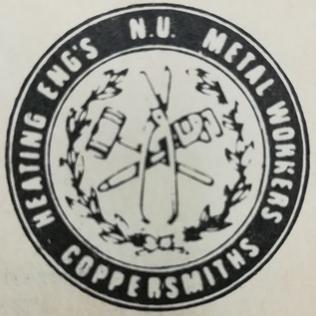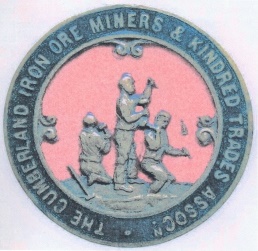Related Research Articles
In British politics, an affiliated trade union is one that is linked to the Labour Party. The party was created by the trade unions and socialist societies in 1900 as the Labour Representation Committee and the unions have retained close institutional links with it.
John Hodge was a Coalition Labour party politician in the United Kingdom, and was the first Minister of Labour and the second Minister of Pensions.

The Iron and Steel Trades Confederation (ISTC) was a British trade union for metal-workers and allied groups, being the largest union in these fields. It was formed on 1 January 1917 as a merger of existing steel-workers' unions and it is now part of Community.
Community is a UK trade union which formed in 2004. The union represents workers in a diverse range of sectors, including iron and steel, domestic appliance manufacturing, clothing, textiles, footwear, road transport, betting and gaming and call centres, as well as workers in voluntary organisations, workshops for visually impaired and disabled people, community-care providers and housing associations. Although the former trade unions which amalgamated to form Community were all craft unions or industrial unions, Community is now a general union. Community has merged or transferred engagements with a number of smaller unions, some of which have become sections within Community. These include the National League of the Blind and Disabled (NLBD), the National Union of Domestic Appliance and General Operatives (NUDAGO), the National Union of Knitwear, Footwear & Apparel Trades (KFAT), the British Union of Social Work Employees (BUSWE), the Prison Service Union and the UFS.
The National Amalgamated Union of Labour (NAUL) was a general union in the United Kingdom.

The Amalgamated Society of Boilermakers, Shipwrights, Blacksmiths and Structural Workers (ASB) was a trade union in the United Kingdom. Many of its members worked in shipbuilding, in which industry it was the leading trade union, while over time it also developed strength in engineering and construction.
The United Patternmakers Association (UPA) was a trade union in the United Kingdom.

The National Union of Sheet Metal Workers, Coppersmiths, Heating and Domestic Engineers was a trade union in the United Kingdom and Ireland.
The National Union of Blastfurnacemen, Ore Miners, Coke Workers and Kindred Trades (NUB) was a trade union in England and Wales which existed between 1888 and 1985. It represented process workers in the British iron and steel industry.

The National League of the Blind and Disabled (NLBD), currently a section within the Community trade union, was a trade union in its own right in the United Kingdom throughout the twentieth century (1899-2000), and is said to be the oldest surviving disabled person's organisation in the world.
John Valentine Stevens was a British trade unionist and Lib-Lab politician.
The British Steel Smelters' Association (BSSA) was a trade union representing steel smelters and workers in related trades in Britain.
The Associated Iron and Steel Workers of Great Britain was a trade union representing people employed in iron- and steelworks in Britain.
The Amalgamated Society of Steel and Iron Workers of Great Britain was a trade union representing workers in iron- and steelworks, principally in Scotland.
Ivor H. Gwynne (1867–1934) was a Welsh trade unionist and politician.
The General Union of Tinplate Workers was a trade union representing sheet metal workers in the United Kingdom.
The Amalgamated Society of Enginemen, Cranemen and Firemen was a trade union in the United Kingdom. It represented stationary engine drivers and cranemen in a wide variety of industries.

The Cumberland Iron Ore Miners' and Kindred Trades' Association was a trade union, principally representing iron ore miners in the Cumberland area of North West England.
Ivor Hael Thomas was a British trade unionist and socialist activist.
James Charles Gordon was a British trade union leader and socialist activist.
References
- 1 2 3 Arthur Marsh and Victoria Ryan, Historical Directory of Trade Unions, vol.2, pp.281-282
- ↑ Labour Party, Report of the Executive Committee (1918), pp.115